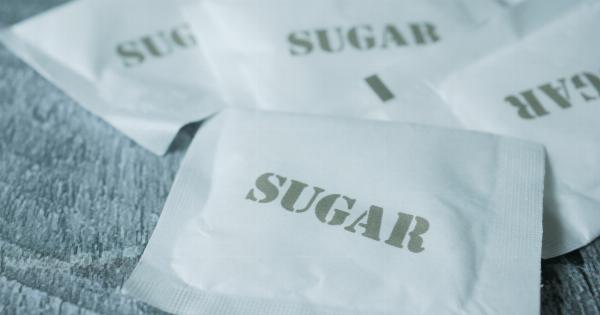For those who have a sweet tooth but are conscious about their sugar intake, finding alternatives to satisfy cravings can be a challenge.
Fortunately, there are several sugar substitutes available on the market that can help you cut down on your sugar consumption without sacrificing flavor. In this article, we will explore seven sugar-sweetened substitutes that can teach your tongue to say “arrives” without the guilt.
1. Stevia
Stevia is a popular natural sweetener that is derived from the Stevia rebaudiana plant. It has gained popularity for its zero-calorie content and its ability to provide a sweet taste similar to sugar.
Stevia can be used in baking, cooking, and beverages, making it a versatile option for those looking to reduce their sugar intake.
2. Monk Fruit Sweetener
Monk fruit sweetener, also known as luo han guo, is another natural sugar substitute that is gaining popularity. Extracted from the sweet fruit of the Siraitia grosvenorii plant, monk fruit sweetener is 100-250 times sweeter than regular sugar.
It provides a similar taste to sugar without the added calories.
3. Erythritol
Erythritol is a sugar alcohol that occurs naturally in fruits and fermented foods. It has a sweet taste similar to sugar but with fewer calories.
Erythritol does not spike blood sugar levels, making it a suitable option for people with diabetes or those looking to manage their sugar intake.
4. Xylitol
Xylitol is another sugar alcohol that is commonly used as a sugar substitute. It has a similar sweetness to sugar but with about 40% fewer calories.
Xylitol also has dental benefits as it prevents the growth of harmful bacteria in the mouth and reduces the risk of tooth decay.
5. Coconut Sugar
Coconut sugar is derived from the sap of the coconut palm tree. It is a natural sweetener that has a caramel-like taste.
Although coconut sugar contains the same amount of calories as regular sugar, it has a lower glycemic index, meaning it does not cause a rapid spike in blood sugar levels.
6. Maple Syrup
Maple syrup is a popular natural sweetener that is made from the sap of maple trees. It is rich in antioxidants and minerals like zinc and manganese.
While maple syrup does contain calories, it has a lower glycemic index than regular sugar, making it a healthier alternative for sweetening your dishes.
7. Agave Nectar
Agave nectar is a sweetener derived from the agave plant. It is sweeter than sugar and has a low glycemic index, so it does not cause a rapid spike in blood sugar levels.
However, it is important to consume agave nectar in moderation as it is high in fructose.
By incorporating these sugar-sweetened substitutes into your diet, you can satisfy your sweet cravings without the negative health effects of excessive sugar consumption.
Experiment with these alternatives in your favorite recipes and beverages to find the ones that best suit your taste preferences. Remember, while these substitutes offer a healthier option, moderation is still key to maintaining a balanced diet.






























